Grenada offers everything you would expect from an island destination: stunning beaches, fascinating underwater worlds, and relaxed village vibes. In recent times, the country has been adding ecotourism opportunities to the list so tourists from all over the world can travel in a socially conscious way.
Grenada is reinventing tourism in ways that are hard to ignore. The country is being very deliberate about ecotourism: protecting its environment and wildlife, offering visitors memorable experiences, and empowering its people.
Before I researched and wrote this article I knew very little about ecotourism and (dare I say) didn’t give it much thought at all. (I almost said I didn’t care, but that sounded too harsh). Now I have a new appreciation and admiration for people, businesses and countries that put forth the time, effort and money to protect our environment. And that’s not just lip service. Thank the Lord there are people like that in our world!

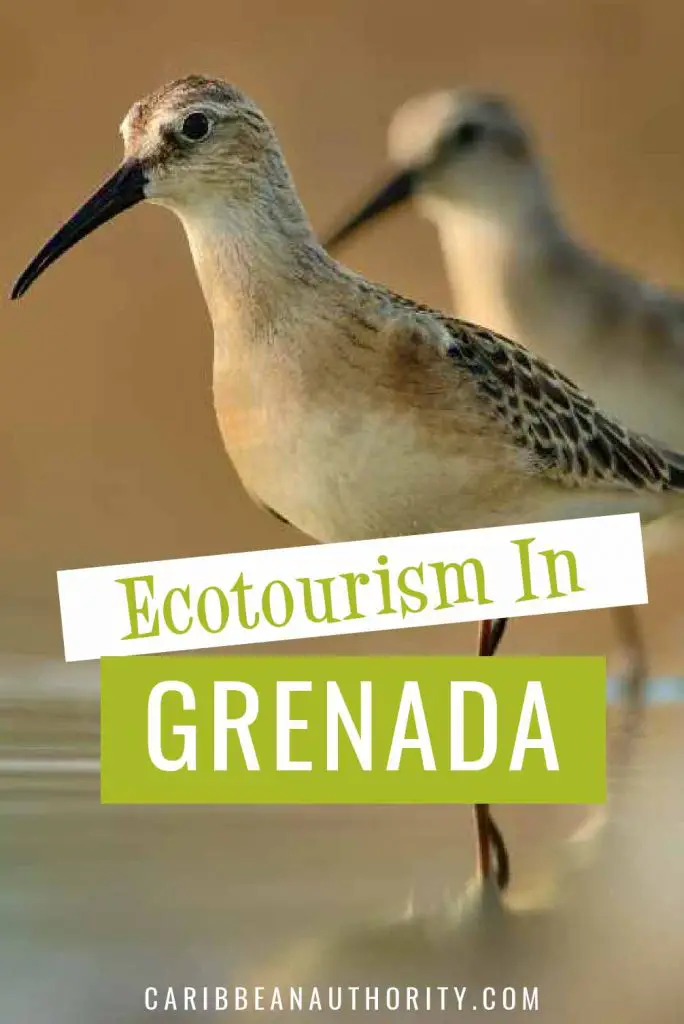
What is Ecotourism?
According to The International Ecotourism Society, the official definition for ecotourism is “responsible travel to natural areas.” Other travel practices may define ecotourism in slightly different ways, yet it essentially boils down to the same general idea. An eco-tourist decides to travel in a way that shows regard for nature and does not contribute to its degradation.
Ecotourism is responsible travel to natural areas.
ecotourism.org
Also called sustainable tourism, ethical tourism, responsible tourism, geotourism, and green tourism, such travel will conserve the environment and sustain the wellbeing of local citizens. It also involves the interpretation and education of staff and guests to minimize the impact of tourism on people, animals, and environments.
Why should we care about Ecotourism?
There has been a real rise in ecotourism, which is a positive sign, given the benefits associated with the practice. We should care about ecotourism due to the positive impact it can have on the environment, people, and wildlife of a particular destination. Imagine if a mad rush of people came to visit your state? Wouldn’t you hope they left your lakes, streams, and parks in the same condition they found them? (Unfortunately, there are no oceans, seas or mountains in Wisconsin that would-be visitors could decimate. At least I think that’s unfortunate…).
There are also many advantages of ecotourism including:
Ecotourism Improves the management of natural resources
Focusing on ecotourism ensures policies and practices are put in place to protect natural resources.
Thorough research is conducted, and consideration is given to the optimal conditions for protecting environments and resources so that they are maintained. People can enjoy them for generations to come.
This even extends to the efficient mining and extraction of certain valuable resources, ensuring there are restrictions to prevent these materials from being overmined.
Ecotourism Fosters awareness about the environment
Ecotourism promotes the sharing of knowledge that will help to preserve the environment. Specific ecotourism sites can use this knowledge to manage tourists so that the area is protected appropriately, while also educating tourists about the factors that should be considered when visiting a natural site to preserve it.
Tourists can then spread this environmental awareness information to encourage other people to be more mindful when they travel. Ecotourism also enables tourists and environmentalists to understand the biology and ecosystem of an area better, leading to conservation projects to protect endangered species.
Ecotourism Provides a sustainable source of income
As a socially conscious way of life increases in popularity, so does ecotravel. It appeals to people who want to do the right thing, directing more tourism income towards good causes.
This income is contributing a significant chunk of cash flow to local communities as well as conservation projects like the protection of endangered species. The money can also help to sustain an economy, provide jobs for locals, and improve the use of available resources.
Ecotourism Offers a unique and affordable experience for tourists
Ecotourism destinations provide a unique experience that immerses a tourist in a local environment. It offers the opportunity to see the country through a different lens, rather than focusing on mainstream tourist attractions. Tourists are also able to engage with locals and learn more about traditional culture.
How does Grenada participate in ecotourism?
Grenada is one of the world’s most impressive tourist destinations. Its beautiful and diverse landscape makes it a popular spot for honeymooners, adventure seekers, and luxury travelers.
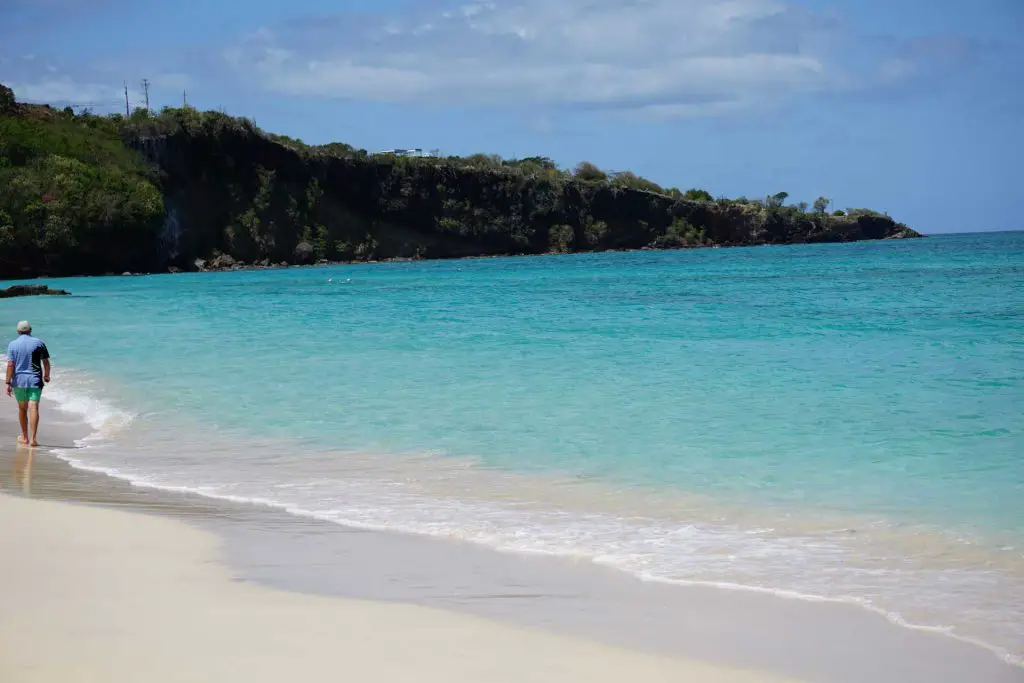
Grenada embraces and promotes its natural riches, far-reaching coastline, and extensive marine biodiversity. With post-card worthy scenes, it is no surprise that Grenada has attracted the attention of tourists from across the globe.
The reality is that tourism in Grenada is more than pretty beaches and luxury resorts. The element that truly sets the country apart is its genuine commitment to protecting its habitat. It does this while simultaneously promoting tourism and laying the infrastructure to support an increasing number of visitors.
The intact beauty of the Spice Island’s rainforest, waterfalls, and mountains is alluring. The government and people are aware that they need to preserve their environment and have implemented initiatives to ensure that this happens. Their tourism practice is designed to protect the island while also allowing visitors to enjoy this natural heritage.
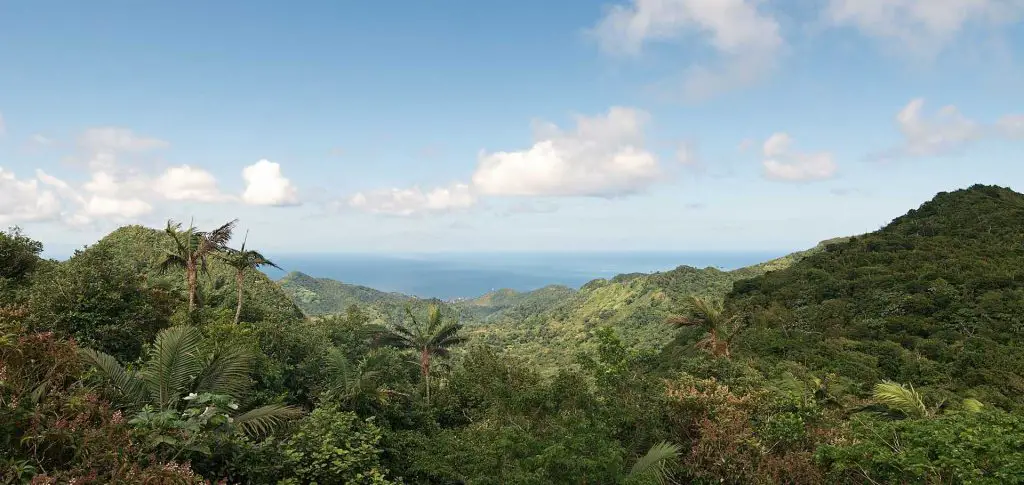
The tourism initiative includes the development of National Parks at Grand Etang and Levera as well as an artificial coral reef. Other ongoing projects consist of a monkey observation program and the conservation of the leatherback sea turtle. There are also restrictions for building heights in Grenada, with regulations stating that they must never exceed the height of a palm tree. (Take that Cancun with your sky-high hotels lined up side-by-side casting an evil shadow on my beach chair early afternoon!).
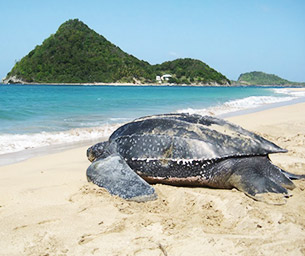
In being deliberate about ecotourism, Grenada has ensured the frameworks have been put in place to protect their land while accommodating increasing numbers of tourists. Seriously, how easy would it be to let the world into your beautiful island borders, take their money, and send them on their way giving no thought to the impact they’ve left behind to your seas, animal, and earth? Grenada has my utmost admiration. Bravo!
How can You support ecotourism when visiting Grenada?
Tourists visiting Grenada can support ecotourism in several ways:
- Visit ecotourism sites. The tourism income generated from these sites is invested in preserving these sites and the local environment. Do your research and visit ecotourism sites where you will get an enjoyable experience and contribute to a good cause. I listed several in the next section.
- Stay at eco-friendly hotels. I’ve listed Green Globe certified hotels in Grenada below.
- Shop at local stores. This way, you know your money will be going directly to locals, stimulating their economy and helping them to support their families.
- Participate in locally-led tours. They will most likely be better quality, have local insight, and you will also be contributing to the income of local residents.
Places in Grenada that support ecotourism
Here are just a handful of popular ecotourism sites in Grenada:
- Grand Etang Lake and National Park – most famous for wildlife and hiking
- Levera National Park – the most scenic spot in Grenada hosting much of the island’s wildlife
- La Sagesse Beach – a mangrove estuary with three beaches abundant with palm trees, coral reef, dry thorn scrub, cactus woodland, and salt pond
- Concord Falls – a hiker’s delight
- Fedon’s Mountain – a derivative of the trail to Concord Falls; another hiker’s delight
EcoFriendly Hotels in Grenada
Concern for the environment also extends to the hospitality industry in Grenada. As mentioned, one way to support ecotourism is to stay at hotels that implement eco-friendly practices. The Green Globe is an organization that certifies businesses, especially those in hospitality, that have met over 44 core criteria supported by over 380 compliance indicators related to ecotourism. You can read more about it on Green Globe’s website.
Anywho, below are the four hotels in Grenada that have Green Globe certifications proving they are in fact, eco-friendly warriors!
Blue Horizons Garden Resort
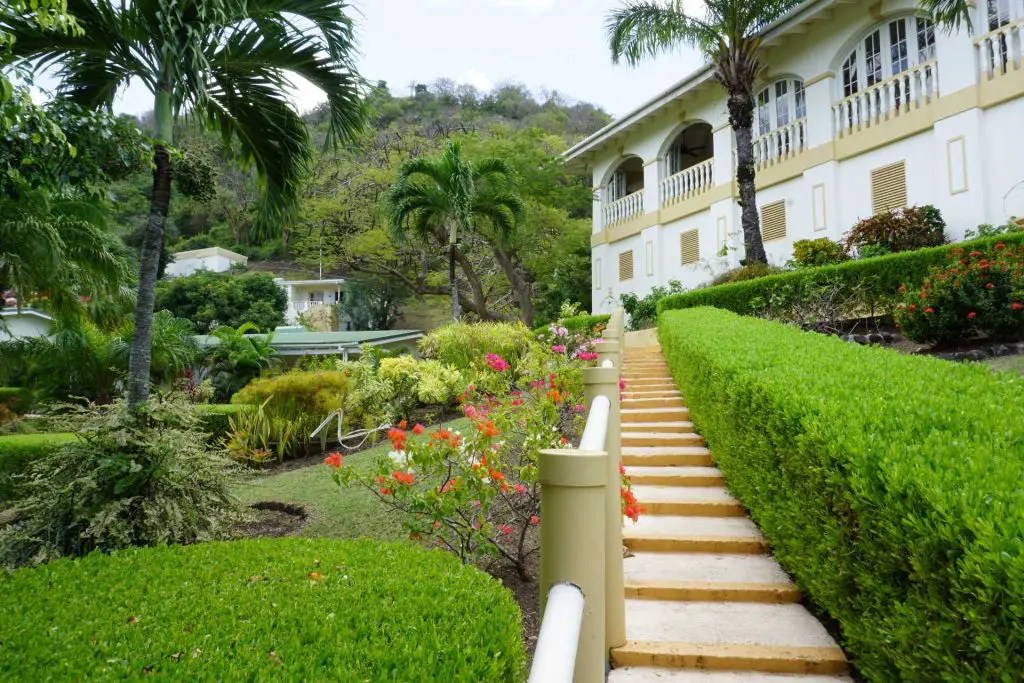
(Psst…Check out my review of Blue Horizons and find out why I didn’t want to publish it!).
Mount Cinnamon Resort and Beach Club
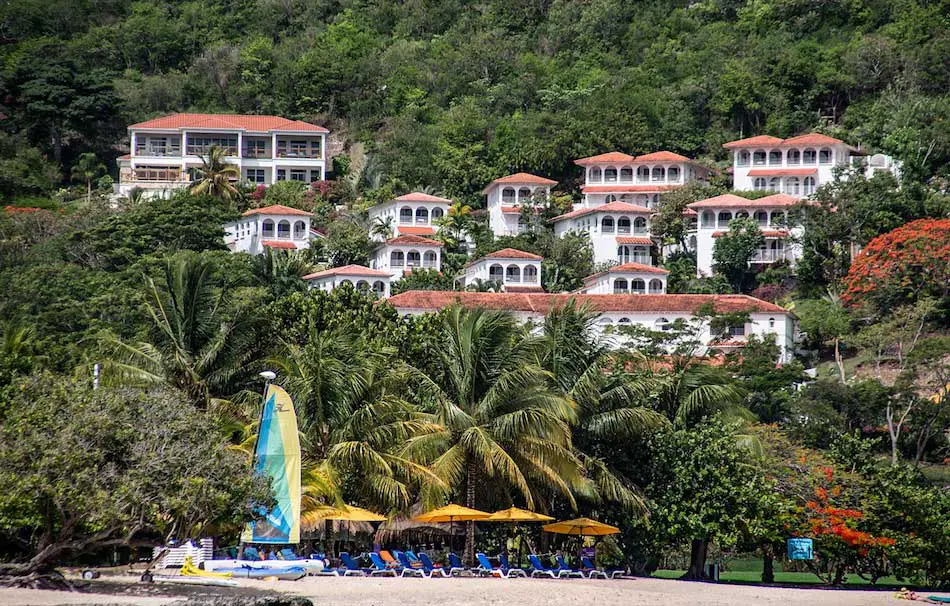
Spice Island Beach Resort
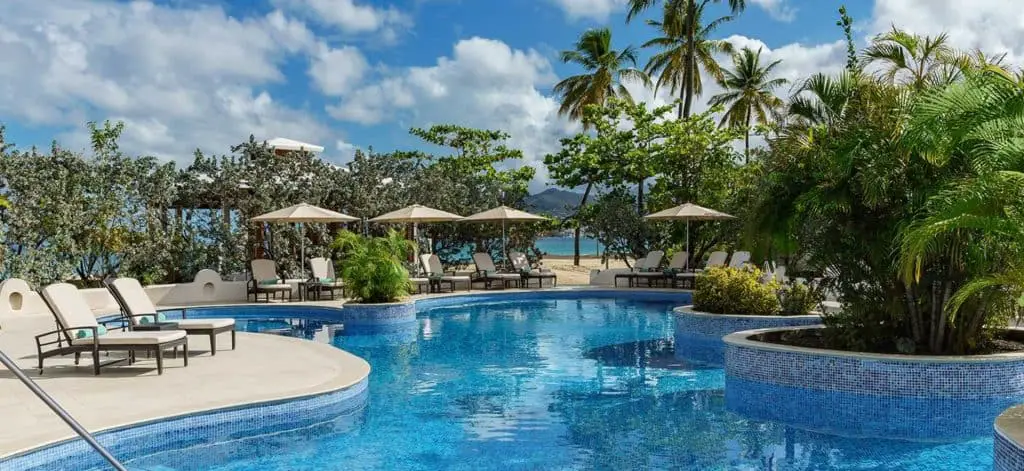
True Blue Bay Boutique Resort
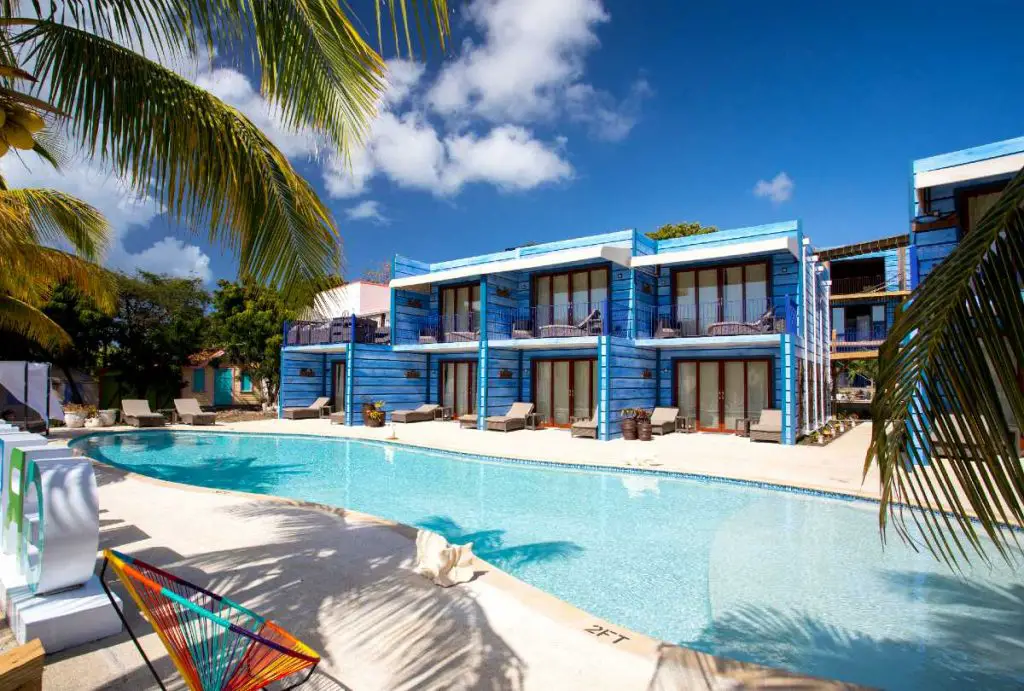
Note: I’m sure there are many other hotels in Grenada that have strong beliefs in the environment and sustainable ways and that have also implemented eco-friendly practices, but I have no way of verifying their legitimacy or degree of adherence. I don’t know squat about it and would fail miserably if I tried – so, I decided to rely on the experts at Green Globe. (Hope that’s OK)
Things to be aware of with ecotourism
While ecotourism has many benefits, there are still some factors we should be aware of to protect our precious natural environments. It’s only fair to bring all sides to the conversation. Am I right?
Degradation of ecosystems
With any form of tourism, too many visitors can have a significant impact on wildlife and habitats.
Countries that practice ecotourism should keep this in mind and cap the number of visitors per day to a site if appropriate. Tour guides should also be properly educated to ensure they keep their groups in dedicated areas to avoid destroying local flora and fauna.
Displacement of local communities
The displacement of communities is a detrimental impact of any large-scale tourism, even eco-tourism. Sometimes the focus on preserving a particular site and encouraging positive tourism to that place can make people forget about the locals it is impacting.
As tourism grows, more infrastructure is put in place to accommodate more visitors. This is often at the disadvantage of locals who lose their houses and communities to make room for accommodation and other facilities. This also means that indigenous culture can be threatened as it gets lost amongst mass tourism.
Conflicts between people and wildlife
As ecotourism grows, people and wildlife end up living closer together. This results in increased friction over things like property damage.
Summary
Researching this article really opened my eyes to another world outside my beach chair. I hope you were enlightened, or at least know more than you did before and take away these key points:
- Ecotourism protects the environment. This has benefits for both locals and visitors.
- Grenada has a big focus on ecotourism. This has led them to implement strategies that develop their infrastructure, economy, and people.
- There is a range of prominent ecotourism sites in Grenada. Some of these sites include Grand Etang Lake and National Park, Levera National Park, Lake Antoine National Park, La Sagesse, Concord Fall, and Fedon’s Mountain.
- There are a few things to keep in mind with ecotourism, such as its impact on ecosystems, local communities, and conflicts between people and wildlife.
So, where do you stand on ecotourism? Are you for it or against it and why? Also, if you know of other eco-friendly hotels in Grenada and want to give them a shout out – hit up the comments below.
Happy Planning!

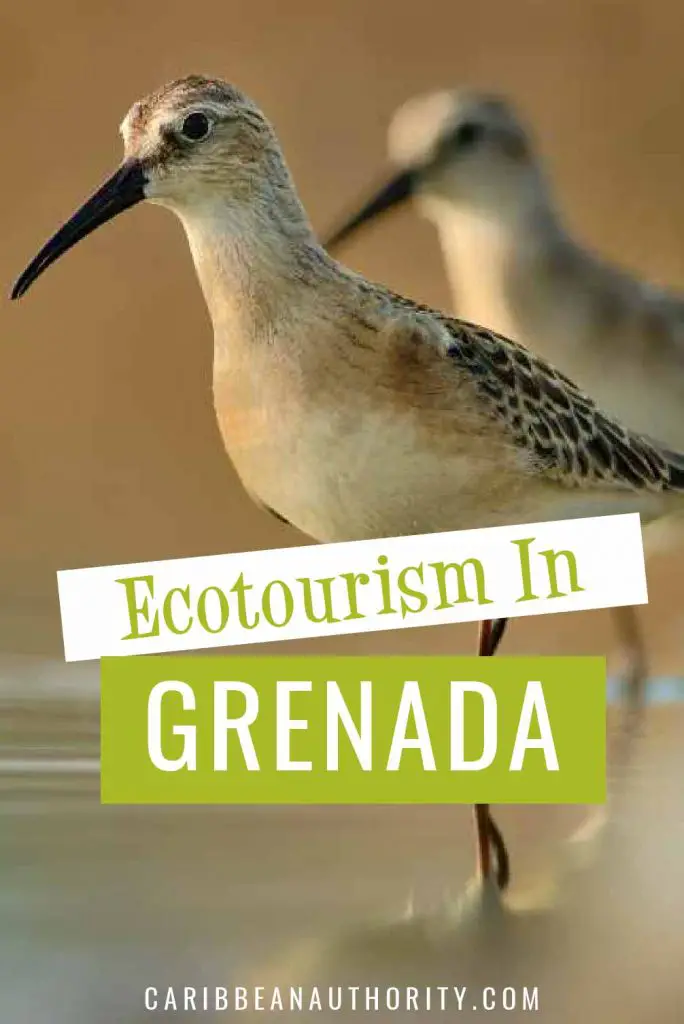
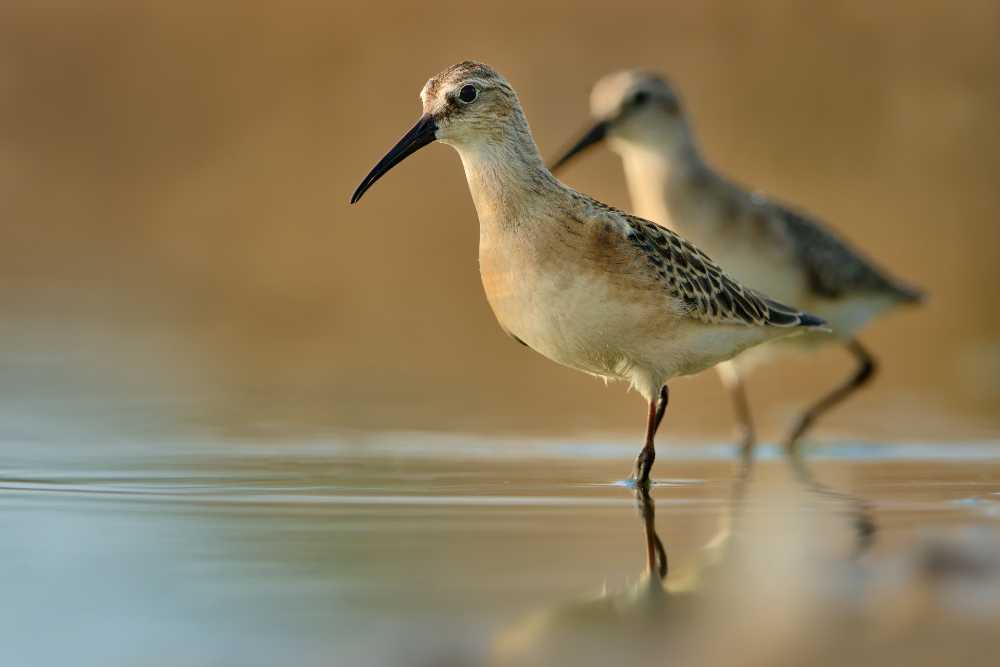

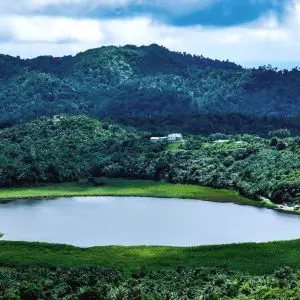
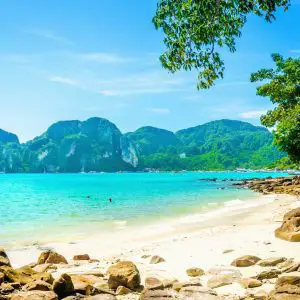
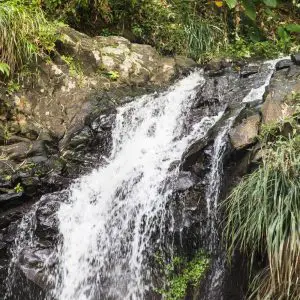


2 thoughts on “Ecotourism in Grenada”